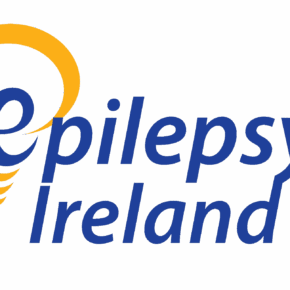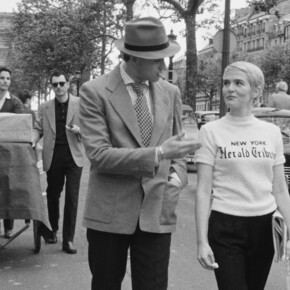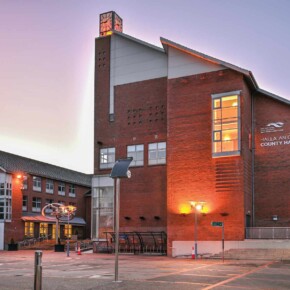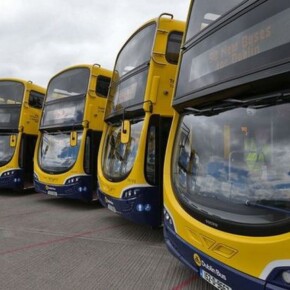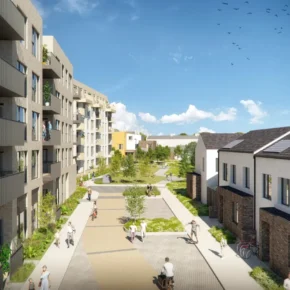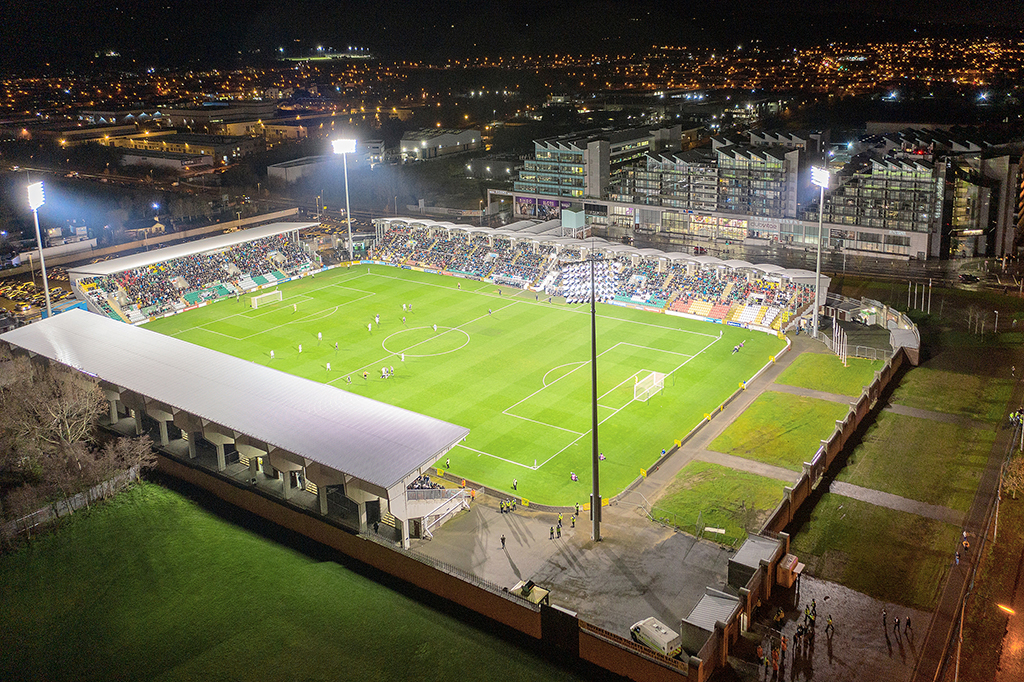Sinn Féin goes into detail on housing
Mike Finnerty 14 Aug 2024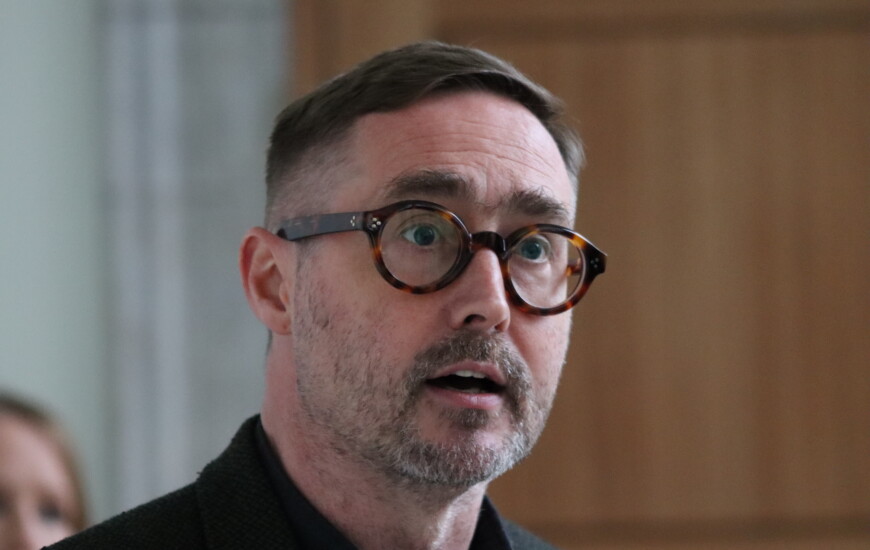
Sinn Féin have announced their plans to tackle the housing crisis, and what precisely they would do with housing should they get into power.
Housing was one of the major issues that launched Sinn Féin to electoral success in the 2020 general election, and with a new general election just around the corner, the party has set out its stall on what it looks to do in government.
“We have the finance, the land and the builders to solve this crisis, what is needed is the right plan,” the policy reads, with the party stating that document is the first part of Sinn Fein’s detailed housing plan.
Sinn Fein’s Affordable Homes Plan outlines their housing policy in more detail, with the headline figures stating that the party would deliver affordable homes from €250,000 to €300,000.
They stated that the party would build 50,000 homes during their stint in government.
To achieve their aims, the party would deepen cooperation with local authorities, approved housing bodies, and community housing trusts.
“The lack of affordable housing is also undermining efforts to continue to grow the economy and deliver our public services. Schools cannot get teachers, particularly in areas like Dublin, hospitals cannot get key healthcare staff and businesses cannot get the workers they need,” the document reads.
This week, data from the Residental Tenancies Board found that large landlords now control as much of a quarter of tenancies on the market in Dublin.
As far as Sinn Féin are concerned, the publication of the policy couldn’t have come at a better time.
Following comments by Fine Gael Minister Paschal Donohoe that corporate landlords provide a “healthy” mix in the housing market, Sinn Féin now found themselves in more comfortable territory; attacking the government on housing.
Donohoe told the media on Thursday “far from seeing corporate investors as a sign of failure, if we want to provide a lot more rental properties and rental homes within our country, we need investors and companies who can do it at scale – and the corporate sector is the only way that that can be done.”
Donohoe repeating the party line on corporate influence in home ownership is red meat to the Sinn Féin faithful, with local TD Seán Crowe saying “I personally know so many people who desperately want to own their own place but have been priced out of home ownership by years of policies by Fianna Fáil and Fine Gael that have fuelled this housing crisis”.
To that effect, Sinn Féin’s document states “we are driven by our belief that everyone deserves a good, safe, affordable home and that when markets are failing as they are now you need strong decisive intervention from the state to deliver those homes.”
With Sinn Féin dropping sharply in opinion polls and local election results coming in well below expectations, the party playing the hits on housing can be read as the party looking to win back the crowd.
The architect of Sinn Féin’s housing plan, Dublin Mid-West TD Eoin Ó Broin, said that his party are offering a “new deal.”
He said that he wants both private builders and developers to build more homes at more moderate prices, and believes this can be achieved by introducing policies that reduce delays, risk and cost to builders and developers.
In terms of practicalities, Ó Broin explained the party would “significantly increase staff in Councils and An Bord Pleanála, and expanding the planning and environmental panel in the courts to five full-time judges.”
In his view, this would translate to providing builders with lower cost finance and infrastructural services.
He said that the party would introduce “use it or lose it” legislation that would compel developers to use the land they have or risk losing access to residential developers.
“Our plan would mean we are using the state’s own development capital more efficiently to get a better deal for the taxpayer while increasing the overall volume of new public and private sector homes being built.
Ó Broin called out what he called “inflationary demand side subsidies”, most notably the Help to Buy scheme.
Naturally, the plan to phase out Help To Buy has been greeted with hostility from current Minister for Housing Darragh O’Brien.
O’Brien said the policy was “further proof of Sinn Féin’s plan to take the legs out from under prospective buyers. Schemes such as Help To Buy are assisting more than 50,000 families and individuals in their home ownership journey.”
Remarking that the policy was “built on sand,” O’Brien stated Sinn Féin’s plans are “exclusionary”, pointing to the heading “linking affordability to income.”
“A Garda and a teacher on point five of their respective salary scales would not be eligible to apply for these homes, unlike the Government schemes which contain no arbitrary salary caps,” O’Brien noted.
Page four of the document reads “Sinn Féin believes that affordability with respect to housing costs must be linked to income.”
“We believe that for those on or below average incomes, housing costs in affordable cost rental should be no more than 33% of net income and less where possible, while mortgage costs in affordable purchase should also be no more than 33% of net disposable income.”
When former Fine Gael TD Eoghan Murphy became Minister for Housing in 2017, he pursued a “co-living” plan as part of his ministerial stint.
Academics and economists state that because of the co-living plan being pursued by the government, it took agency away from local authorities and is a major contributing factor to Ireland’s current housing crisis.
When Fianna Fáil took control of the housing brief following the 2020 general election, the plan was quietly scrapped.
Figures from the Department of Housing, published on the final Friday of every month, revealed that the number of people seeking emergency accommodation in Ireland has broken the all-time record for three consecutive months, with the number of people without a home in Ireland increasing ever since the eviction ban was lifted in early 2023.
The Dublin Simon Community said that the number of people in emergency accommodation in Ireland could fill Hill 16 in Croke Park, with the figures for June standing at 14,303.
Of that figure, 10,396 of those are in Dublin, which marks a 12% increase compared to the same time period in 2023.
Notably, the figures provided by the Department of Housing do not include “invisible homelessness” such as people sleeping on couches or uncounted rough sleepers.
Catherine Kenny, CEO of Dublin Simon said “the Dublin Simon Community calls on the government and relevant agencies to prioritise immediate measures that will tangibly reduce homelessness and provide sustainable housing options for all. It is not enough to say that housing is a challenge in this country – we all know it is – the question is what the government intends to do about it in the months before we go to the polls. The time for action is now.”


